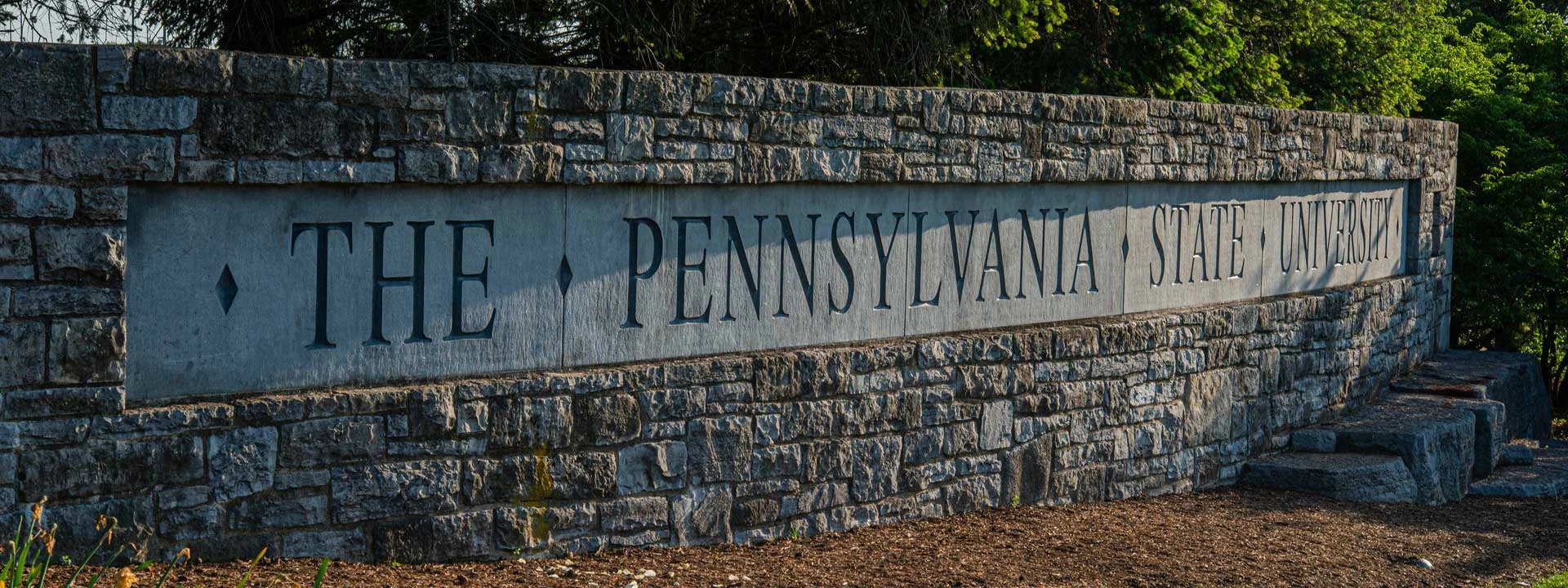
Mission and Values
The Pennsylvania State University is a multi-campus, land-grant, public research university that educates students from around the world and supports individuals.
Our instructional mission includes undergraduate, graduate, professional, continuing, and extension education offered through both resident instruction and distance learning. Our educational programs are enriched by the talent, knowledge, diversity, creativity, and teaching and research acumen of our faculty, students, and staff.
Our discovery-oriented, collaborative, and interdisciplinary research and scholarship promote human and economic development, global understanding, and advancement in professional practice through the expansion of knowledge and its applications in the natural and applied sciences, social and behavioral sciences, engineering, technology, arts and humanities, and myriad professions.
As Pennsylvania’s land-grant university, we provide unparalleled access to education and public service to support the citizens of the Commonwealth and beyond. We engage in collaborative activities with private sector, educational, and governmental partners worldwide to generate, integrate, apply, and disseminate knowledge that is valuable to society.
Our Values
Integrity
We act with integrity and honesty in accordance with the highest academic, professional, and ethical standards.
Respect
We respect and honor the dignity of each person, embrace civil discourse, and foster a diverse and inclusive community.
Responsibility
We act responsibly, and we are accountable for our decisions, actions, and their consequences.
Discovery
We seek and create new knowledge and understanding, and foster creativity and innovation, for the benefit of our communities, society, and the environment.
Excellence
We strive for excellence in all our endeavors as individuals, an institution, and a leader in higher education.
Community
We work together for the betterment of our University, the communities we serve, and the world.
Public Character
Penn State, founded in 1855 as an agricultural college, admitted its first class in 1859. The Pennsylvania legislature designated Penn State as the Commonwealth's sole land-grant institution in 1863, which eventually broadened the University's mission to include teaching, research, and public service in many academic disciplines. Penn State has awarded more than a half-million degrees and has been Pennsylvania's largest source of baccalaureate degrees at least since the 1930s.
Although the University is privately chartered by the Commonwealth, it was from the outset considered an "instrumentality of the state," that is, it carries out many of the functions of a public institution and promotes the general welfare of the citizenry. The governor and other representatives of the Commonwealth have held seats on Penn State’s Board of Trustees since the University's founding, and the legislature has made regular appropriations in support of the University's mission since 1887.
Today, Penn State is one of four “state-related” universities (along with the University of Pittsburgh, Temple University, and Lincoln University), institutions that are not state-owned and -operated but that have the character of public universities and receive substantial state appropriations. With its administrative and research hub at the University Park campus, Penn State has twenty-three additional locations across Pennsylvania. While some of these locations, such as the Penn State Health Milton S. Hershey Medical Center, have specialized academic roles, they all adhere to a common overall mission and set of core values and strategic goals.
